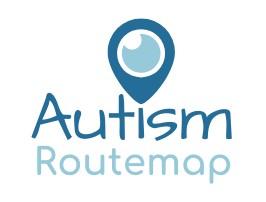The secret to thriving even through the tough times

In his book simply titled, “But I survived”, Tadeusz Sobolewicz shares the story of his personal ordeal surviving six Nazi concentration camps, a Gestapo prison and a nine-day death march. It is the harrowing tale of a man who fought bravely to stay alive in hellish conditions for the duration of World War 11.
Thankfully, most of us will never have to face such extreme hardship but Sobolewicz’s story nonetheless has relevance for our lives today. We may not be trying to escape death but difficulties come in all shapes and sizes. And this tragic tale of woe is also one of hope. Hope that whispers, “you can too”.
Of course, we know that for every Sobolewicz, there are many more who give up. Plenty who try and fail and fail to rise again.
So, what enables one person to overcome whilst another crumples in defeat?
I believe the answer lies in resilience. Resilience is the antidote to succumbing, complaining, blaming and numbing. Resilience is the ability to endure with hope. It is our capacity to overcome challenges and emerge stronger.
Unfortunately, resilience isn’t sold in tablet form. You can’t get a prescription from your doctor for a course of resilience.
Resilience is no quick-fix solution. It is cultivated over time. We develop it in stages. We get a little stronger every time we refuse to give in and choose to use our resilience muscles instead.
But are these actual muscles or does resilience have another form?
Resilience can be a physical thing. Navy seals train their bodies to endure conditions that would send your average couch potato running for the nearest sofa. Mastery doesn’t happen overnight though. Recruits go through gruelling training to reach that supreme level of strength and fitness.
But for those of us who don’t spend our days submerged in ice cold water or running up and down mountains before breakfast, resilience looks a little different. It's a quality that infuses our minds and emotions.
This resilience involves the ability to use our thinking to channel our emotional energy effectively. It is recognising the frustrations and setbacks that cross our paths and choosing a response rather than simply reacting.
Someone posted on social media this week that, “resilience is turning up at the vaccination centre (as a volunteer) with a smile on your face”. I love that! It’s a choice. You can give in to the heaviness or you can choose an alternative. You are the master of your thinking.
Something that I find helpful is to shift from “what if” to “even if”. “What if” is a fear-based response that fuels worries about worst possible outcomes. “What if I lose my job?” “What if I don’t get accepted?” “What if the news is bad?”
“Even if” is a courage-based response stemming from a belief that you can cope and overcome. It acknowledges that even if the worst happens, you will be OK. You will find a way.
None of us (that I know of anyway) actively look for hardship or welcome tough times. We work hard to avoid pain. We devote oodles of time to pleasure. We plan trips, holidays, outings and get togethers that make us feel good. Social media flourishes because people post beautiful, happy pictures that others want to see.
But as lovely as it is to lie on the beach and soak up the sun, resilience doesn’t grow in the good times. Resilience is developed in the trenches.
Oprah Winfrey gave birth to a child at 14 years and the baby subsequently died; Jim Carrey was homeless; Benjamin Franklin dropped out of school at 10 years; Vincent Van Gogh only sold one painting in his lifetime; Franklin Roosevelt was paralysed by polio …. and yet each of these people achieved great things. They chose to forge a forwards path in spite of tremendous challenges.
So whatever you are facing, keep in mind Franklin Roosevelt’s wisdom: “When you reach the end of your rope, tie a knot in it and hang on”. And remember, even if the outcome is bad, you can too.
To resilience!
Linda
Exciting news! Linda will be running a 12 week group coaching program for young people & adults with a focus on understanding the impact of autism and developing strategies for managing stress and overwhelm more effectively.
The course is now open for enrolment, so if you're interested, click below to find out more.
Linda is a Speech and Language Therapist with a Masters in Human Communication. She works with neurodivergent people who want to develop their emotional well-being, communication & people skills. You can find out more at www.autismroutemap.com
Disclaimer
This blog post is for educational purposes and should not be taken as medical or therapeutic advice. If you need medical or therapeutic support, please consult your medical practitioner or therapist.

